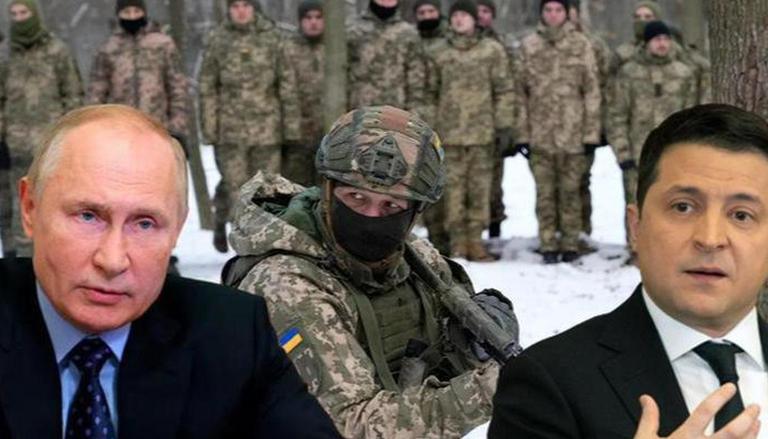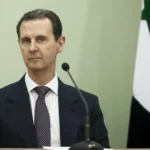The Israeli philosopher and historian, Yuval Noah Harari, wrote in the Economist about then still looming military conflict between Russia and Ukraine. Harari opened with a few pointed questions: “At the heart of the Ukraine crisis lies a fundamental question about the nature of history and the nature of humanity; is change possible? Can humans change the way they behave, or does history repeat itself endlessly, with humans forever condemned to re-enact past tragedies without changing anything except the décor?”
He argues that the stockpile of nuclear weapons by competing superpowers, the transformation of the world economy to one based on knowledge rather than raw materials, a cultural shift that has seen national elites regard war as an avoidable evil, and the very change in the meaning of peace itself—from a temporary to perpetual absence of war—as reflected in declining military budgets, all of these things have led to the decline of war and man’s elevation to a plane higher than our evolutionary bestial selves.
- NIGERIA DAILY: Journey Into The Banditry Ravaging Northern Nigeria
- Armed robbers kill Benue bizman, 1 other
For Harari, it is this “greatest political achievement” of mankind that stands in jeopardy by Russian military aggression towards Ukraine, and why it “should concern every person on Earth”, because “if again becomes normative for powerful countries to wolf down their weaker neighbours, it would affect the way people all over the world feel and behave”, he says. This is a sophisticated argument, no doubt. But from where I sit, it is also pointedly dishonest.
As always, the true meaning of a text is often not in what it declares, but in what it eclipses. First, his argument abridges human history by claiming that the changes of the past seven decades are of a different level than the period before it. Cultural change in the human condition is possible and has happened several times in the past—we are no longer hunters and gatherers for example—but the experiences of the last 70 years are certainly not sufficient to declare that mankind has managed to achieve a decline in war. Since history has not yet ended, how can we tell?
If Russia had not invaded Ukraine, perhaps someone else would invade another elsewhere in completely different circumstances. In any case, the statistical evidence of wars is one thing, its experiential evidence another. Many peoples have lived under war-like conditions at various periods since 1945. In Africa, the Middle East, Asia and even within Europe itself, people have contended with many forms of brutal conflicts, that, to them, are really no less than wars. The Palestinians have lived under siege almost non-stop since 1948. And how many Iraqi women and children died from painful economic warfare called sanction between 1991 and 2003? How many have died since the U.S invasion of that country?
Wars have been alive and well since 1945. Of course, these may not be wars between superpowers as in Germany and the Allied Nations in 1939-1945, but to those who have lived through them, their experiences cannot be written off as a ‘decline’ in war or humanity’s ‘greatest political achievement’. In other words, to make his argument, Harari needed to bracket off the experiences of other peoples and reduce the diversity of human history to just recent western history. But such historical reductionisms and eclipses are not accidental; they are deeply cultural and widespread.
Anyone who has followed coverage of this conflict in the so-called ‘international media’ would have noticed how the ideological rifts between left and right in the domestic politics of the U.S and its European allies have simply collapsed in the name of a common enemy, Russia. Suddenly, the so-called unbridgeable ideological gulfs between Brexiteers and Remainers in Britain, between Democrats and Republicans in the U.S, between the National Front/National Rally and the Socialists in France, and similar such divisions elsewhere, have all but disappeared.
Suddenly, the far-right and the far-left and everything in between are now on one and the same side. Supposedly ideologically different media, from the BBC and CNN to Fox News, from the New York Times and The Guardian to the Economist and the Telegraph all now speak with one voice, approach the conflict from the same perspective, and use the same diction and labels to describe its major actors. With these supposedly “free and independent media”, you don’t need any state-owned propaganda machine.
But the point is that it is this echo chamber of speaking to self in matters between the West and the Rest that really prevents western political leaders, intellectuals, journalists, and citizens from really seeing and feeling the world as others do. It is why Harari’s article, regardless of its intellectual depth, is really just as one-sided and narrow-minded as anything published today in tabloids like the Sun and the Daily Mail. It is why Biden and the EU have launched a $10 billion ‘Marshal Plan’ for Ukraine, but not for Libya which they themselves bombed to ashes.
And above all, it is why western political and thought leaders are unable to see that the Russians have genuine concerns for saying they don’t want NATO’s weapons on their door-step in Ukraine. As Putin himself asked recently: “If Ukraine joins NATO and decides to take back Crimea through military means what would happen next?” It would be a global catastrophe of the highest proportions because a nuclear armed Russia will be compelled to fight back, and due to the Article 5—all for one, and one for all—the NATO countries will also be forced to join in and the very war between superpowers that Harari would like to avoid would ensue.
Indeed, this is the very reason NATO is not directly involved militarily in this war so far. If there ever was a pointless war, it is this one. And all it takes to have avoided it or end it now is some legally binding agreement for a neutral Ukraine that should be free to look westwards to the EU economically, politically and culturally, but not in any military alliance with NATO. And if the U.S and its European allies cannot give even just that, and are happy to waste Ukrainian lives in a pointless war, who is threatening Harari’s perpetual peace?
So what then is this war about? I think there is one thing above all. Perhaps the most important outcome of this conflict, for the West, is a unity of political purpose they have not had for long. Since at least 2010, western society has been increasingly torn apart against itself from within, as wild cleavages like Brexit and the storming of the U.S Capitol show. The effects of the global economic crises of 2007-2008 and the pandemic have only worsened things.
Whatever their root causes, these crises have hit at the very foundations of western politics, economy and culture and in ways that had been difficult to stave off and that left unchecked could easily have reached a boiling point. Many political and thought leaders have lamented the cleaving effects of these crises, but none had any answers. Russia, Putin and Ukraine have now helped bring all the internal warring wings of western society back under the same roof. You can expect some domestic calm over the next few decades as new enemies are being re-imagined. For me, this is the whole point. The only point.

 Join Daily Trust WhatsApp Community For Quick Access To News and Happenings Around You.
Join Daily Trust WhatsApp Community For Quick Access To News and Happenings Around You.

